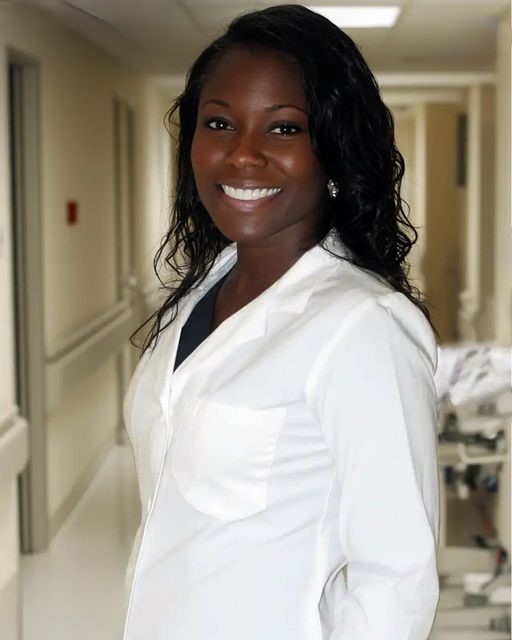Chief Doctor Disgracefully Fired Me for Performing Surgery on a Homeless Woman – The Next Morning, He Fell to His Knees Before Me

When Dr. Vanessa Hughes received a new patient wheeled into her ER, she was faced with an impossible choice: save a homeless woman’s life and risk her own career, or adhere to the hospital’s strict policy of only treating patients who could afford the care. Choosing the former, Vanessa made a decision that would cost her dearly—but one that would ultimately change everything.
I had only been a surgeon for three months when my entire world began to unravel.
After years of intense study, sleepless nights, and pushing myself beyond my limits, I had finally reached my dream: saving lives. I became a doctor to help people, to change the course of their lives for the better. But I never imagined that one fateful decision would put all of that at risk.
Late one evening during a grueling shift, I was kept awake by too much coffee and stale donuts, with the quiet hum of the hospital creating a false sense of calm. I was on my ER rotation, waiting for the next case, when the eerie stillness was suddenly broken by the sound of an ambulance rushing in.
The doors flew open, and paramedics wheeled in a stretcher. The patient, a frail woman, was barely conscious, covered by a bloodstained sheet.
“Code Red, Doc,” said Salma, the paramedic. “We lost her for a few minutes, but she’s back.”
As I assessed the woman’s injuries, I realized this wasn’t just another routine case. She had no identification, no medical insurance, and no one to speak for her. She was homeless, and her injuries were life-threatening. Her spine was damaged, and if we didn’t act quickly, she would lose all mobility—and quite possibly her life.
But there was a problem. Hospital policy dictated that major surgeries could only be performed on insured patients or those with someone willing to cover the costs. No money? No surgery.
I could hear the voice of the chief surgeon, Dr. Harris, in my head: “This isn’t a charity, Vanessa.”
But how could I let this woman die because of a policy? I had taken an oath to save lives, not to prioritize those who could afford it.
I made my decision.
Ignoring the hospital’s rules, I prepped for emergency surgery. My team worked quickly, and I spent hours fighting to save her life, with Enya’s music filling the operating room to help calm my nerves. Every second was critical, and by the time the sun rose, the woman was stable.
I should have felt relief, but instead, I felt dread. I knew the real challenge was just beginning.
Later that morning, as I rounded the floor, I saw Dr. Harris walking toward me, his face hard and serious. He wasn’t alone—everyone seemed to be watching, sensing the storm that was coming.
“You performed an unauthorized surgery last night,” he said, his voice booming. “Thousands of dollars spent on someone who can’t pay a cent. This hospital isn’t a charity, Vanessa.”
I tried to explain, to tell him that I had saved her life. But he cut me off with a cold finality: “You’re fired.”
I was numb as I left the hospital, my mind spinning. Years of hard work, long nights, and sacrifices—all gone because I chose to help someone who had no means to pay. Was it worth it? Had I just thrown my career away?
Yes, I told myself. No life is a hopeless cause.
The next morning, I received an unexpected phone call from the hospital, asking me to come in. Despite my pride, curiosity got the better of me, and I agreed.
When I arrived, I knocked on Dr. Harris’ office door, bracing for another confrontation. But when he opened the door, his expression had completely changed. His face was tear-stained, and he looked broken.
“Vanessa, I’m so sorry,” he said softly.
I was stunned.
“You saved her… You saved my mother.”
I blinked, trying to process his words. The homeless woman I had risked everything for was his estranged mother. He explained how his parents had gone through a bitter divorce when he was young, and his father had taken him away, severing all ties with his mother. He had been searching for her for years, but she had vanished, lost in the cracks of society.
And now, because of me, she was alive. She recognized him the moment she woke up, and for the first time in decades, they were reunited.
Dr. Harris wasn’t the same man who had fired me. He was humbled, grateful, and full of regret. He promised to use his position to create a fund that would allow the hospital to treat patients regardless of their ability to pay. No more would people like his mother fall through the cracks.
I never expected to get my job back, but I did. Along with an apology and a promise that the hospital would be different from now on.
In the end, I hadn’t just saved a life—I had mended a family torn apart by time and loss. And perhaps, changed the future for countless others.
What would you have done in my place?